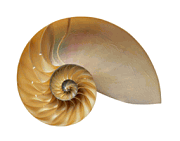
nau | english | rothfork | teaching | eng522 syllabus | Foucault's Archaeology of Knowledge

Michel Foucault:

The Archaeology of Knowledge
Ch. 2: Discursive Formations | Foucault, Michel. The Archaeology of Knowledge & The Discourse on Language.
31: “What, in fact, are medicine, grammar, or political economy?” They are not physical objects, nor quasi-physical objects. They are professions or they provide themes for professional discussion. They are the discourse communities.
32: F. parallels Thomas Kuhn’s explanations of discourse communities. “The unity of discourses on madness would not be based upon the existence of the object ‘madness,’ or the constitution of a single horizon of objectivity.” Far from being a quasi-physical object for some kind of scientific study, “madness” is a judgment about the behavior of people. Standards of “normal” behavior (as well as “madness”) change over time and vary among world cultures. A few years ago a man wandered around Santa Fe naked, apparently imitating a group who wander the streets of Berkeley naked to advocate their right not to wear clothes. The guy in Santa Fe was put in jail. In India thousands of naga sadhus wander around stark naked. They are revered for their austerity & holiness. So who is crazy?
33: “Discursive formation” to create unity or coherence is largely a matter of professional methods that define what constitutes “data” and professional methods for dealing with data. It is “the rules that make possible the appearance of objects [the gestalt assembly of perceptions into data] . . . objects that are differentiated in daily practice, in law, in religious casuistry, in medical diagnosis . . . objects that are circumscribed by medical codes, practices, treatment, & care.” Kuhn describes how a professional paradigm or model illustrates professional methods, especially for various scientific communities. F. says, “for the first time, medicine . . . presupposed the same way of looking at things . . . the same analysis of the pathological fact . . . the same system of transcribing what one perceived in what one said (same vocabulary, same play of metaphor); in short, it seemed to me that medicine was organized as a series of descriptive statements” or rules specifying professional medical standards of treatment.
34: F. is more dedicated to pragmatism & Aristotle than to Plato. Forms are not static. Being words or concepts, they do not float in space waiting to be perceived. Forms originate, endure for some time as words & concepts, and ultimately fade or dissipate. “If there is a unity [or Form] . . . is it not rather the group of rules, which . . . have made possible purely perceptual descriptions [i.e., professional jargon that specifies data], together with observations mediated through instruments, the procedures used in laboratory experiments, statistical calculations, epidemiological or demographic observations, institutional regulations, & therapeutic practice?” F. suggests that unity is created by cultural agreement; & that such agreement results more from shared practices than from conscious analysis & choice.
37: Newtonian physics offered a paradigm for explanation than is still enshrined. This model supposes that a cause produced whatever present phenomena we are interested in. To understand phenomena, we must imaginatively follow temporal events back to their putative cause or origin in something like a linear thread or chain. When we are convinced of the truth or adequacy of the explanation, it substitutes for the phenomena. The explanation is often considered more penetrative, profound, or important than the event it explains. F.’s postmodernism turns all this around. “Rather than seeking the permanence of themes, images, and opinions through time, rather than retracing the dialectic of their conflicts . . . could one not rather mark out the dispersion of the points of choice, and define . . . a field of strategic possibilities?” You see how attention is shifted away from the objects of study – the stuff of medicine or justice or grammar – to refocus on the processes of gestalt formation, on perception, and patterns of association?
“Instead reconstituting chains of inference . . . instead of drawing up tables of differences (as the linguists do), it [postmodern “explanation,” cf. deconstruction] would describe systems of dispersion” or alternative ways of associating data. Obviously there can be no single or definitive right answer in this view.
38: Instead, there are multiple “discursive formations.” There are multiple views. A pattern forms from the discursive interaction of people prompted to act in a “professional” way by the institutional environments they work in. The solidity, dignity, & seriousness of “‘science,’ ‘ideology,’ ‘theory,’ or ‘domain of objectivity’” are eroded. People simply play games offered by various professions & institutions, just as they speak various languages offered by the various cultures of the world. “The rules of formation [of patterns] are conditions of existence . . . in a given discursive division” or institution where people share the same discourse style & jargon.
39: F. knows that many scholars, practitioners (e.g., medical practitioners), and religious people feel threatened by the loss of absolute answers & the security they provided. (Remember Dostoevsky’s Grand Inquisitor?) “Is there not a danger that . . . the sciences . . . [&] the uninterrupted movement of totalizations . . . & finally the historico-transcendental thematic . . . may disappear, leaving for analysis a blank, indifferent space, lacking . . . promise?” Well . . . yes. In the 19th century, many people did not want to be told that they were biologically related to monkeys; & many today still find it too unpalatable to accept. Catholic church authorities refused to look through Galileo’s telescope or credit Copernicus’ explanations. They excommunicated people for getting inoculations, relying on the same “discursive formation” or theory of Natural Law that they continue to use to oppose birth control. Socrates was executed for asking embarrassing questions.
* * *
Home Background Education Publications Teaching NAU English
NAU HomeEmail: john.rothfork@nau.edu 09.04.01